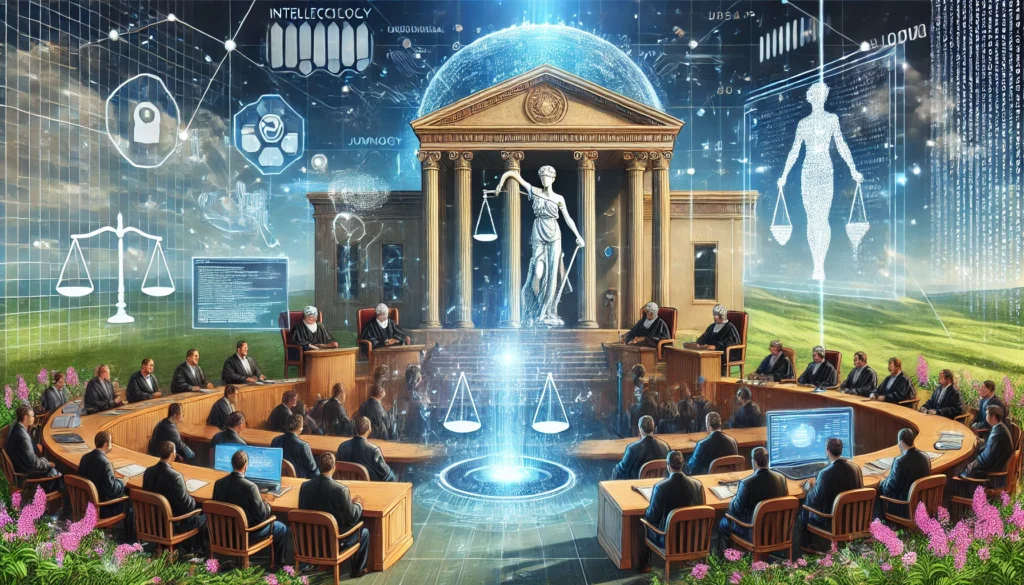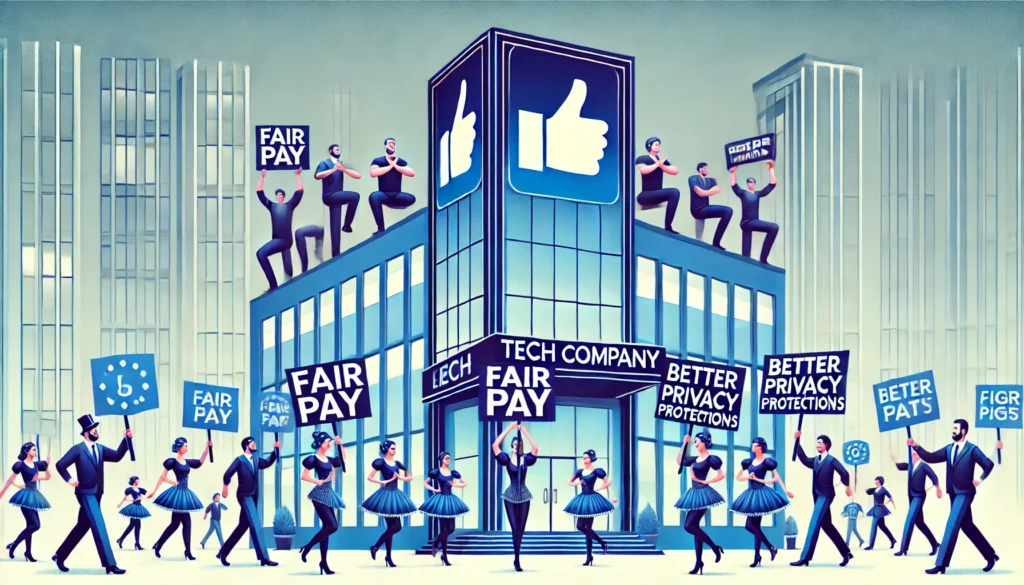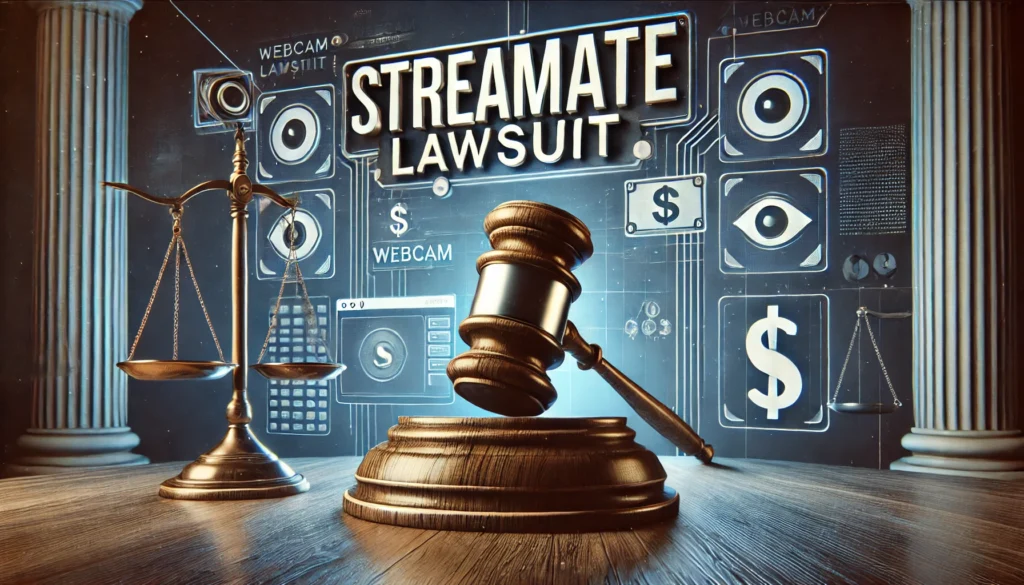Streamate Lawsuit is a widely recognized live adult webcam platform that connects performers with users in real-time video sessions. While Streamate offers a service that has become highly popular in the adult entertainment industry, it has also faced several legal challenges that bring attention to both worker rights and technology use in the digital age. This article explores one of Streamate’s significant legal battles, focusing on a wage and hour class action lawsuit, as well as a past patent infringement case, shedding light on the broader implications for the adult entertainment industry and businesses that operate in the gig economy.
The Wage and Hour Class Action Lawsuit
Background of the Case
On July 13, 2023, a class action lawsuit was filed against Streamate in the U.S. District Court for the District of New Jersey. The plaintiffs, in this case, are webcam performers who have worked on the platform, and they allege that Streamate’s operators, ICF Technology, Inc. and Accretive Technology Group, Inc., misclassified them as independent contractors rather than employees.
The key issue in the case revolves around how Streamate categorizes its workers. The plaintiffs argue that they were treated like independent contractors, which means they didn’t receive the benefits or protections that employees are entitled to under U.S. labor laws. These benefits include things like minimum wage, overtime pay, and protection from certain types of work-related deductions.
Key Allegations
The lawsuit points out that performers who worked on Streamate were paid on a commission basis, often earning a percentage of the revenue generated from their individual shows. According to the plaintiffs, they were responsible for a wide range of costs, such as maintaining their own equipment and paying platform fees, but were not compensated with a guaranteed minimum wage. This practice, they argue, violates wage and hour laws.
Another significant claim is that Streamate made unlawful deductions from performers’ earnings. These deductions, the lawsuit alleges, were improperly taken from their pay and were not justified under labor laws. The plaintiffs argue that Streamate failed to uphold proper financial transparency and fairness in how it treated its workers.
Legal Implications
The potential legal consequences for Streamate are serious if the court sides with the plaintiffs. The company could be forced to pay back wages owed to the performers, as well as any additional damages for the misclassification of their employment status. The ruling could have a far-reaching impact on other gig economy platforms, especially those in the adult entertainment sector, by forcing them to reconsider how they classify and compensate workers. If Streamate is found liable, it might have to make significant changes to its operational structure, such as offering employees benefits like paid time off, sick leave, and healthcare.
Historical Legal Challenges
Patent Infringement Lawsuit (2014
In addition to the ongoing class action lawsuit, Streamate has faced legal challenges related to its use of technology. One of the notable legal battles occurred in 2014, when Streamate was sued for patent infringement. The plaintiff, a company claiming to own patents for internet broadcasting services, alleged that Streamate’s streaming technology violated these patents.
The core issue in this case was the use of specific live-streaming technologies by Streamate, which the plaintiff argued were protected under their intellectual property. Intellectual property disputes, especially in the tech industry, can be complicated, as companies like Streamate rely heavily on proprietary technologies to provide their services. The patent infringement lawsuit underlined the need for Streamate to ensure that it wasn’t violating any existing patents while developing or incorporating new technologies into its platform.
While the lawsuit was resolved without major penalties for Streamate, it still had significant ramifications for the company. It highlighted the complexities of operating in the digital space, where technology is constantly evolving, and companies must navigate an increasingly complex web of intellectual property laws to avoid legal issues.
Key Legal Issues Highlighted
Worker Misclassification
The central legal issue in the ongoing class action lawsuit is the misclassification of workers as independent contractors. This has been a common legal challenge in many gig economy sectors, where companies often classify workers as independent contractors to avoid the costs and obligations associated with hiring employees. In the case of Streamate, the plaintiffs argue that their work conditions were very similar to those of traditional employees, and therefore, they should have been entitled to benefits and protections under employment law.
Independent contractors have more flexibility in their work arrangements but do not receive benefits such as minimum wage, health insurance, or job security. Employees, on the other hand, are entitled to these protections but are typically subject to more oversight by the employer. The lawsuit challenges whether Streamate’s performers should be classified as independent contractors or employees. This case could influence how gig economy companies across various industries approach worker classification in the future.
Intellectual Property Rights
The 2014 patent infringement case brings to the forefront another important legal issue: intellectual property rights. As a platform that relies on advanced streaming technology, Streamate must navigate the complexities of patent law to avoid infringing on existing patents. Technology-driven companies must be careful when adopting or creating new technologies to ensure they don’t violate intellectual property laws.
The patent infringement lawsuit against Streamate highlights the risks that businesses face when using proprietary technology. Even if a company believes it is innovating, it still must consider whether its innovations infringe on the patents of others. Failure to do so can result in costly lawsuits, damage to reputation, and the need to pay substantial licensing fees.
Broader Implications for the Adult Entertainment Industry
Worker Rights and Protections
The wage-related lawsuit against Streamate reflects a broader movement within the adult entertainment industry to improve working conditions for performers. Many performers argue that, despite the nature of their work, they should receive the same legal protections as employees in other industries, such as minimum wage, overtime pay, and health benefits. The lawsuit could serve as a turning point for worker rights in the adult entertainment sector, encouraging other platforms to reconsider how they classify their performers and treat them legally.
If Streamate loses the case, the decision could have a ripple effect across the entire adult entertainment industry. Other platforms may face similar lawsuits, and this could lead to a wave of reforms aimed at ensuring fair pay and benefits for performers. It may also prompt more regulations at the state and federal levels regarding the employment status of adult entertainers.
Technology and Intellectual Property
Intellectual property issues are a significant concern for companies like Streamate, which depend on cutting-edge streaming technology to provide their services. The patent infringement lawsuit demonstrates that even companies operating in the adult entertainment space must carefully navigate the complex world of intellectual property law. The outcome of such cases can influence how other businesses in the industry develop and use new technologies. Streamate’s legal struggles might encourage other companies to adopt stricter licensing practices or to innovate more cautiously to avoid infringing on existing patents.
Current Status and Future Outlook
Ongoing Nature of the Lawsuits: Both the wage-related class action lawsuit and the patent infringement case are still unresolved, and their outcomes remain uncertain. If Streamate loses the class action, it could be required to pay significant damages to the performers. The company may also have to alter its business model, including reclassifying performers as employees and offering benefits like minimum wage and healthcare. Additionally, if the patent infringement case results in a ruling against Streamate, the company may have to pay licensing fees or adjust its technology use.
Possible Outcomes:
- Financial Settlements: Streamate may reach a settlement with the plaintiffs, paying compensation to the performers and avoiding a lengthy trial.
- Policy Changes: If Streamate is found liable, it may be required to revise its employment practices, including offering additional protections and benefits to its performers.
- Intellectual Property Compliance: The company may need to revise its technology usage, potentially paying for licenses or reworking certain features to avoid patent infringement.
Conclusion
The Streamate lawsuits represent critical legal challenges for both the adult entertainment industry and technology-driven businesses. The wage-related lawsuit highlights the issue of worker classification in the gig economy, while the patent infringement case underscores the importance of intellectual property compliance in the digital age.
As these cases continue to unfold, they will shape the future of the adult entertainment industry and set important legal precedents for companies operating in similar sectors. For Streamate, the outcome of these lawsuits could significantly affect its business operations, from how it compensates workers to how it uses technology in its platform.
FAQs
What is the Streamate wage and hour class action lawsuit about?
The lawsuit claims Streamate misclassified performers as independent contractors, violating wage laws by not providing minimum wage or benefits.
Why are Streamate performers seeking employee status?
Performers argue their work conditions resemble those of employees, entitling them to protections like minimum wage and overtime pay.
What was the outcome of Streamate’s 2014 patent infringement case?
The case highlighted risks of using patented technologies, though Streamate avoided major penalties by resolving it out of court.
How could the class action lawsuit impact the gig economy?
If performers win, it may pressure gig economy companies to reclassify workers and offer employee benefits industry-wide.
What is the broader significance of these lawsuits for the adult entertainment industry?
They emphasize legal accountability for worker rights and intellectual property, pushing platforms toward fairer practices and compliance.
Article Recommendations
Diddy Lawsuit Lil Rod Documents: How This Case Could Reshape Legal Practices
Wingate Wilderness Therapy Lawsuit: How Legal Scrutiny Shapes the Future of Wilderness Therapy
Endurance Warranty Lawsuit: Essential Tips for Protecting Yourself from Contract Misunderstandings




